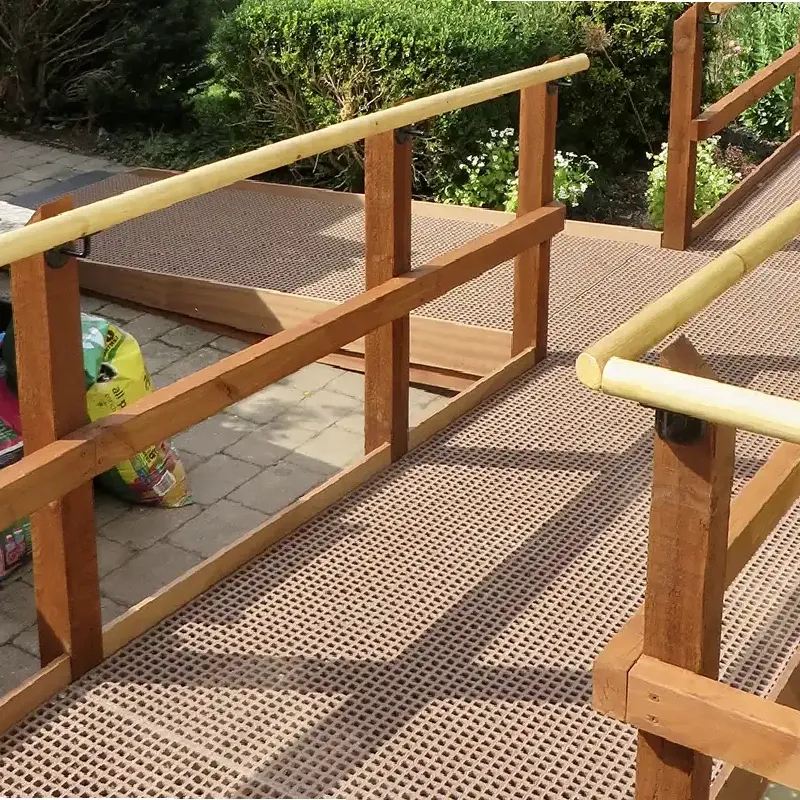loading...
- No. 9, Xingyuan South Street, Dongwaihuan Road, Zaoqiang County, Hengshui, Hebei, China
- admin@zjcomposites.com
- +86 15097380338
- Welcome to visit our website!
Innovative FRP Trench Drain Solutions for Efficient Water Management in Outdoor Spaces
Understanding FRP Trench Drains A Sustainable Solution for Efficient Water Management
In the realm of modern infrastructure, effective water management has become increasingly crucial, particularly in urban areas prone to flooding and waterlogging. One innovative solution that has gained popularity is the Fiber-Reinforced Polymer (FRP) trench drain. This system combines advanced materials with intelligent design to provide an efficient mechanism for surface water drainage. In this article, we will explore the advantages, applications, and considerations of FRP trench drains.
What are FRP Trench Drains?
FRP trench drains are drainage systems designed to collect and transport surface water away from roads, parking lots, and other impermeable surfaces. Made from a composite of fiberglass and resin, FRP trench drains are known for their durability, lightweight nature, and resistance to corrosion. This makes them particularly well-suited for environments where traditional materials, such as concrete or metal, may fail due to exposure to harsh conditions or chemicals.
Advantages of FRP Trench Drains
1. Durability One of the most significant benefits of FRP trench drains is their longevity. FRP materials are resistant to corrosion and decay, which is especially advantageous in areas exposed to chemicals, salt, and moisture. This means lower maintenance costs and longer service life compared to traditional drainage solutions.
2. Lightweight Due to their composition, FRP trench drains are much lighter than their concrete counterparts. This makes them easier to handle and install, reducing labor costs and installation time. Their lightweight nature also means that they can be installed in locations where heavy equipment might not be feasible.
3. Versatility FRP trench drains can be customized to fit a variety of applications. Whether it's for residential use, commercial properties, or large-scale industrial facilities, these drains can be tailored to meet specific drainage needs. Additionally, they can be designed to accommodate varying flow rates and sediment loads.
4. Eco-Friendly As sustainability becomes more critical in today's construction practices, FRP trench drains offer an environmentally friendly option. The materials used can be sourced from recycled products, and their resistance to degradation reduces the need for frequent replacements and waste.
frp trench drain

5. Efficient Water Management The design of FRP trench drains allows for effective collection and redirection of surface water. By quickly channeling rainwater and runoff away from critical areas, they help prevent flooding, soil erosion, and damage to infrastructure.
Applications of FRP Trench Drains
FRP trench drains are utilized in various settings
- Commercial Areas Shopping centers, parking lots, and warehouses benefit from the efficient drainage provided by FRP systems, helping to manage excess water during rainfall and snowmelt.
- Industrial Facilities Factories and manufacturing sites often require robust drainage solutions that can handle chemicals and heavy machinery. FRP trench drains meet these demands while offering protection against corrosion.
- Residential Properties Homeowners increasingly recognize the benefits of these systems for managing water flow around their properties, enhancing landscape aesthetics while preventing flooding.
Considerations and Conclusion
While FRP trench drains offer numerous advantages, it is essential to consider several factors when choosing a drainage system. These include the specific site conditions, expected load and flow rates, and local building codes. Collaborating with professionals familiar with FRP technology can ensure that the right system is selected for optimal performance.
In conclusion, FRP trench drains represent a forward-thinking approach to drainage solutions, marrying modern material science with practical engineering. Their unique advantages render them an ideal choice for various environments, helping to create sustainable and efficient water management systems that meet the demands of contemporary infrastructure. As cities continue to evolve, integrating innovative drainage solutions like FRP trench drains will be vital in safeguarding urban areas against the impacts of climate change and urbanization.
-
Premium FRP Handrail for All ApplicationsNewsAug.29,2025
-
Low Maintenance FRP Mini Mesh Grating ProductsNewsAug.29,2025
-
Innovative FRP Square Tubes for Modern Industrial SolutionsNewsAug.29,2025
-
FRP Water Storage Tanks Wholesale Solutions for Bulk BuyersNewsAug.29,2025
-
FRP Molded Grating Solutions for Diverse Industrial ApplicationsNewsAug.29,2025
-
Construction Advancements Through FRP Pultruded ProfilesNewsAug.29,2025
-
Why Choose FRP Railings, Guardrails, and Handrail Systems?NewsAug.29,2025
